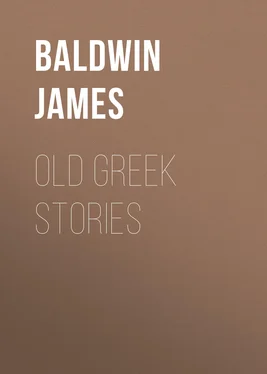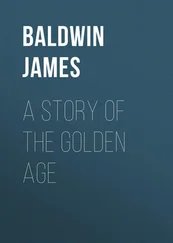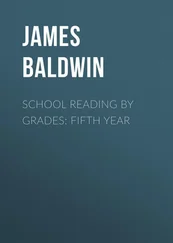James Baldwin - Old Greek Stories
Здесь есть возможность читать онлайн «James Baldwin - Old Greek Stories» — ознакомительный отрывок электронной книги совершенно бесплатно, а после прочтения отрывка купить полную версию. В некоторых случаях можно слушать аудио, скачать через торрент в формате fb2 и присутствует краткое содержание. Жанр: foreign_children, Мифы. Легенды. Эпос, foreign_antique, foreign_prose, на английском языке. Описание произведения, (предисловие) а так же отзывы посетителей доступны на портале библиотеки ЛибКат.
- Название:Old Greek Stories
- Автор:
- Жанр:
- Год:неизвестен
- ISBN:нет данных
- Рейтинг книги:4 / 5. Голосов: 1
-
Избранное:Добавить в избранное
- Отзывы:
-
Ваша оценка:
- 80
- 1
- 2
- 3
- 4
- 5
Old Greek Stories: краткое содержание, описание и аннотация
Предлагаем к чтению аннотацию, описание, краткое содержание или предисловие (зависит от того, что написал сам автор книги «Old Greek Stories»). Если вы не нашли необходимую информацию о книге — напишите в комментариях, мы постараемся отыскать её.
Old Greek Stories — читать онлайн ознакомительный отрывок
Ниже представлен текст книги, разбитый по страницам. Система сохранения места последней прочитанной страницы, позволяет с удобством читать онлайн бесплатно книгу «Old Greek Stories», без необходимости каждый раз заново искать на чём Вы остановились. Поставьте закладку, и сможете в любой момент перейти на страницу, на которой закончили чтение.
Интервал:
Закладка:
The name of the youngest of these Titans was Saturn; and yet he was so very old that men often called him Father Time. He was the king of the Titans, and so, of course, was the king of all the earth besides.
Men were never so happy as they were during Saturn's reign. It was the true Golden Age then. The springtime lasted all the year. The woods and meadows were always full of blossoms, and the music of singing birds was heard every day and every hour. It was summer and autumn, too, at the same time. Apples and figs and oranges always hung ripe from the trees; and there were purple grapes on the vines, and melons and berries of every kind, which the people had but to pick and eat.
Of course nobody had to do any kind of work in that happy time. There was no such thing as sickness or sorrow or old age. Men and women lived for hundreds and hundreds of years and never became gray or wrinkled or lame, but were always handsome and young. They had no need of houses, for there were no cold days nor storms nor anything to make them afraid.
Nobody was poor, for everybody had the same precious things-the sunlight, the pure air, the wholesome water of the springs, the grass for a carpet, the blue sky for a roof, the fruits and flowers of the woods and meadows. So, of course, no one was richer than another, and there was no money, nor any locks or bolts; for everybody was everybody's friend, and no man wanted to get more of anything than his neighbors had.
When these happy people had lived long enough they fell asleep, and their bodies were seen no more. They flitted away through the air, and over the mountains, and across the sea, to a flowery land in the distant west. And some men say that, even to this day, they are wandering happily hither and thither about the earth, causing babies to smile in their cradles, easing the burdens of the toilworn and sick, and blessing mankind everywhere.
What a pity it is that this Golden Age should have come to an end! But it was Jupiter and his brothers who brought about the sad change.
It is hard to believe it, but men say that Jupiter was the son of the old Titan king, Saturn, and that he was hardly a year old when he began to plot how he might wage war against his father. As soon as he was grown up, he persuaded his brothers, Neptune and Pluto, and his sisters, Juno, Ceres, and Vesta, to join him; and they vowed that they would drive the Titans from the earth.
Then followed a long and terrible war. But Jupiter had many mighty helpers. A company of one-eyed monsters called Cyclopes were kept busy all the time, forging thunderbolts in the fire of burning mountains. Three other monsters, each with a hundred hands, were called in to throw rocks and trees against the stronghold of the Titans; and Jupiter himself hurled his sharp lightning darts so thick and fast that the woods were set on fire and the water in the rivers boiled with the heat.
Of course, good, quiet old Saturn and his brothers and sisters could not hold out always against such foes as these. At the end of ten years they had to give up and beg for peace. They were bound in chains of the hardest rock and thrown into a prison in the Lower Worlds; and the Cyclopes and the hundred-handed monsters were sent there to be their jailers and to keep guard over them forever.
Then men began to grow dissatisfied with their lot. Some wanted to be rich and own all the good things in the world. Some wanted to be kings and rule over the others. Some who were strong wanted to make slaves of those who were weak. Some broke down the fruit trees in the woods, lest others should eat of the fruit. Some, for mere sport, hunted the timid animals which had always been their friends. Some even killed these poor creatures and ate their flesh for food.
At last, instead of everybody being everybody's friend, everybody was everybody's foe.
So, in all the world, instead of peace, there was war; instead of plenty, there was starvation; instead of innocence, there was crime; and instead of happiness, there was misery.
And that was the way in which Jupiter made himself so mighty; and that was the way in which the Golden Age came to an end.
THE STORY OF PROMETHEUS
In those old, old times, there lived two brothers who were not like other men, nor yet like those Mighty Ones who lived upon the mountain top. They were the sons of one of those Titans who had fought against Jupiter and been sent in chains to the strong prison-house of the Lower World.
The name of the elder of these brothers was Prometheus, or Forethought; for he was always thinking of the future and making things ready for what might happen to-morrow, or next week, or next year, or it may be in a hundred years to come. The younger was called Epimetheus, or Afterthought; for he was always so busy thinking of yesterday, or last year, or a hundred years ago, that he had no care at all for what might come to pass after a while.
For some cause Jupiter had not sent these brothers to prison with the rest of the Titans.
Prometheus did not care to live amid the clouds on the mountain top. He was too busy for that. While the Mighty Folk were spending their time in idleness, drinking nectar and eating ambrosia, he was intent upon plans for making the world wiser and better than it had ever been before.
He went out amongst men to live with them and help them; for his heart was filled with sadness when he found that they were no longer happy as they had been during the golden days when Saturn was king. Ah, how very poor and wretched they were! He found them living in caves and in holes of the earth, shivering with the cold because there was no fire, dying of starvation, hunted by wild beasts and by one another-the most miserable of all living creatures.
"If they only had fire," said Prometheus to himself, "they could at least warm themselves and cook their food; and after a while they could learn to make tools and build themselves houses. Without fire, they are worse off than the beasts."
Then he went boldly to Jupiter and begged him to give fire to men, that so they might have a little comfort through the long, dreary months of winter.
"Not a spark will I give," said Jupiter. "No, indeed! Why, if men had fire they might become strong and wise like ourselves, and after a while they would drive us out of our kingdom. Let them shiver with cold, and let them live like the beasts. It is best for them to be poor and ignorant, that so we Mighty Ones may thrive and be happy."
Prometheus made no answer; but he had set his heart on helping mankind, and he did not give up. He turned away, and left Jupiter and his mighty company forever.
As he was walking by the shore of the sea he found a reed, or, as some say, a tall stalk of fennel, growing; and when he had broken it off he saw that its hollow center was filled with a dry, soft pith which would burn slowly and keep on fire a long time. He took the long stalk in his hands, and started with it towards the dwelling of the sun in the far east.
"Mankind shall have fire in spite of the tyrant who sits on the mountain top," he said.
He reached the place of the sun in the early morning just as the glowing, golden orb was rising from the earth and beginning his daily journey through the sky. He touched the end of the long reed to the flames, and the dry pith caught on fire and burned slowly. Then he turned and hastened back to his own land, carrying with him the precious spark hidden in the hollow center of the plant.
He called some of the shivering men from their caves and built a fire for them, and showed them how to warm themselves by it and how to build other fires from the coals. Soon there was a cheerful blaze in every rude home in the land, and men and women gathered round it and were warm and happy, and thankful to Prometheus for the wonderful gift which he had brought to them from the sun.
Читать дальшеИнтервал:
Закладка:
Похожие книги на «Old Greek Stories»
Представляем Вашему вниманию похожие книги на «Old Greek Stories» списком для выбора. Мы отобрали схожую по названию и смыслу литературу в надежде предоставить читателям больше вариантов отыскать новые, интересные, ещё непрочитанные произведения.
Обсуждение, отзывы о книге «Old Greek Stories» и просто собственные мнения читателей. Оставьте ваши комментарии, напишите, что Вы думаете о произведении, его смысле или главных героях. Укажите что конкретно понравилось, а что нет, и почему Вы так считаете.












